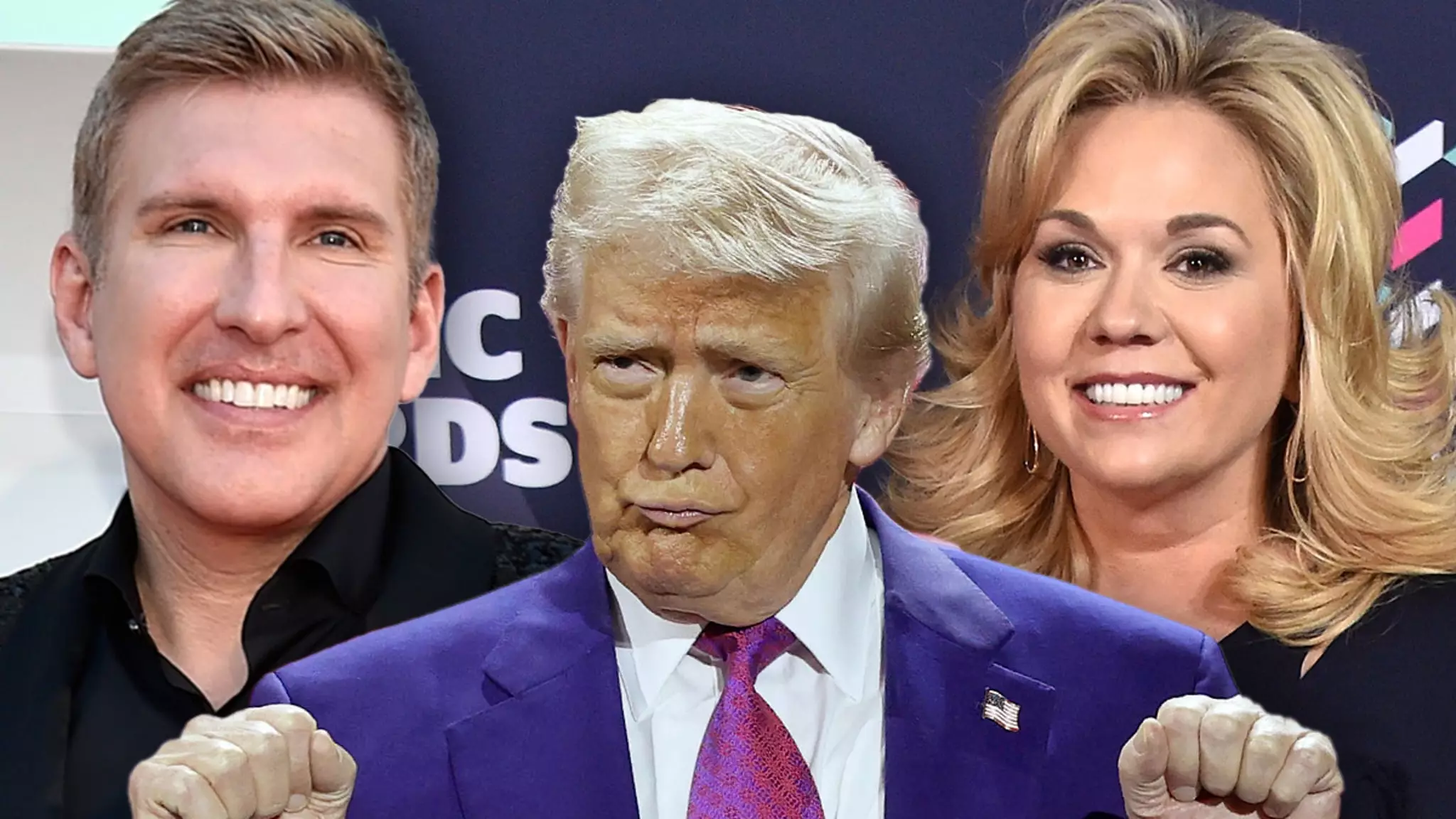The recent pardoning of Todd and Julie Chrisley by former President Donald Trump has sent ripples across the socio-political landscape, igniting discussions about the intersection of celebrity, justice, and political influence. Convicted on charges of bank fraud and tax evasion, the Chrisleys were sentenced to significant prison time in 2022, only to receive unexpected clemency nearly two years later. This event raises crucial questions: Does celebrity status disproportionately affect the justice system, and how much sway do political affiliations have in judicial proceedings?
The Chrisleys, known for their reality television series “Chrisley Knows Best,” were not just ordinary defendants. From the outset, their legal journey has been punctuated by claims of bias and systemic injustice, as articulated by their attorneys. The statement issued post-pardon indicated that their prosecution was steeped in constitutional violations and politically motivated scrutiny. This narrative, while worthy of examination, suggests that a complex interplay of fame, political allegiance, and public perception may have played a pivotal role in their ultimate outcome.
The Role of Political Allegiance
Savannah Chrisley’s vocal defense of her parents during their trial and the subsequent backlash against prosecutors highlights a broader trend of politicization within the judiciary. By asserting that her family was unfairly targeted due to their conservative values, Savannah tapped into a powerful narrative that resonates with certain factions of the public, particularly those who perceive a double standard in the legal proceedings faced by politically aligned figures. This raises an essential dialogue about how individuals in the public eye navigate the consequences of their beliefs and affiliations.
Furthermore, the decision for Trump to contact Savannah personally to relay the news of her parents’ pardoning is emblematic of how celebrity culture intertwines with contemporary politics. The act may not only serve to endear Trump to his base—who see him as a protector of the wronged—but also to bolster the narrative that political leaders can intervene in justice matters to restore what they define as fairness. As supporters celebrate the Chrisleys’ return to freedom, detractors argue that it undermines the integrity of the justice system and sets a troubling precedent for future cases.
Public Reaction and the Bigger Picture
Social media platforms exploded with divided reactions following the announcement of the pardon. Supporters of the Chrisleys rallied behind the decision, framing it as a victory for conservative values and an indication that the system can work for those who are influential. Conversely, opponents have underscored the potential danger of allowing political figures to wield influence over judicial matters, arguing that such actions could erode public trust in law enforcement’s impartiality.
Moreover, this incident raises important ethical questions: Should celebrities receive preferential treatment, or should justice be blind, regardless of one’s fame or wealth? As the aftermath of the Chrisleys’ pardoning unfolds, it is critical to reflect on how the intersection of fame and politics continues to shape public perceptions of justice, accountability, and the judicial system at large. Ultimately, the implications of the Chrisleys’ case extend far beyond their personal freedom, prompting a reevaluation of what it truly means to achieve justice in America today.

